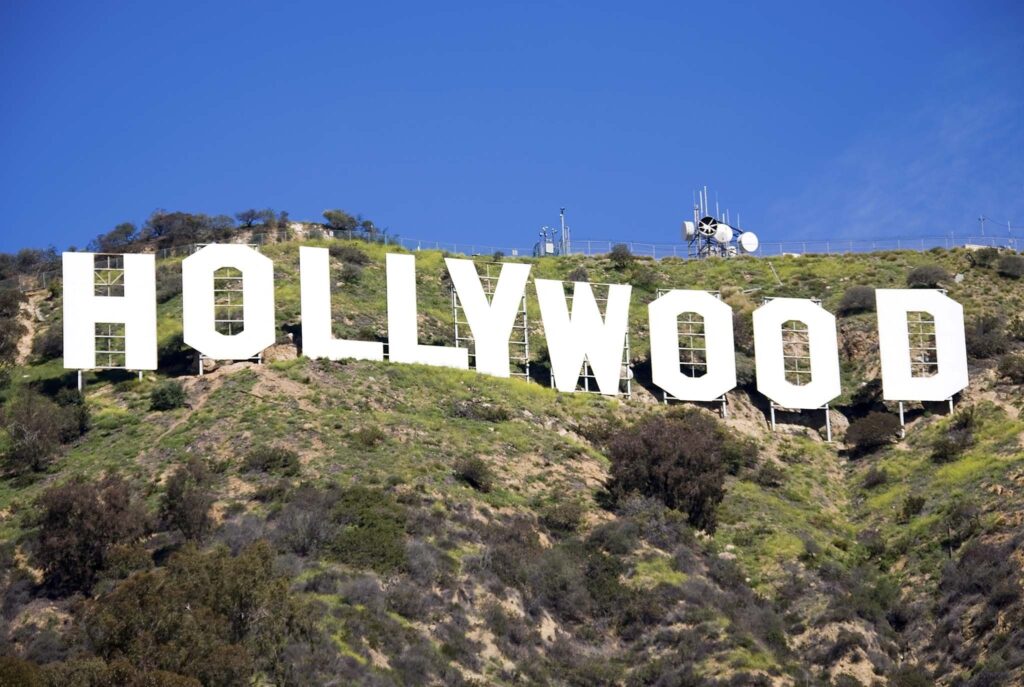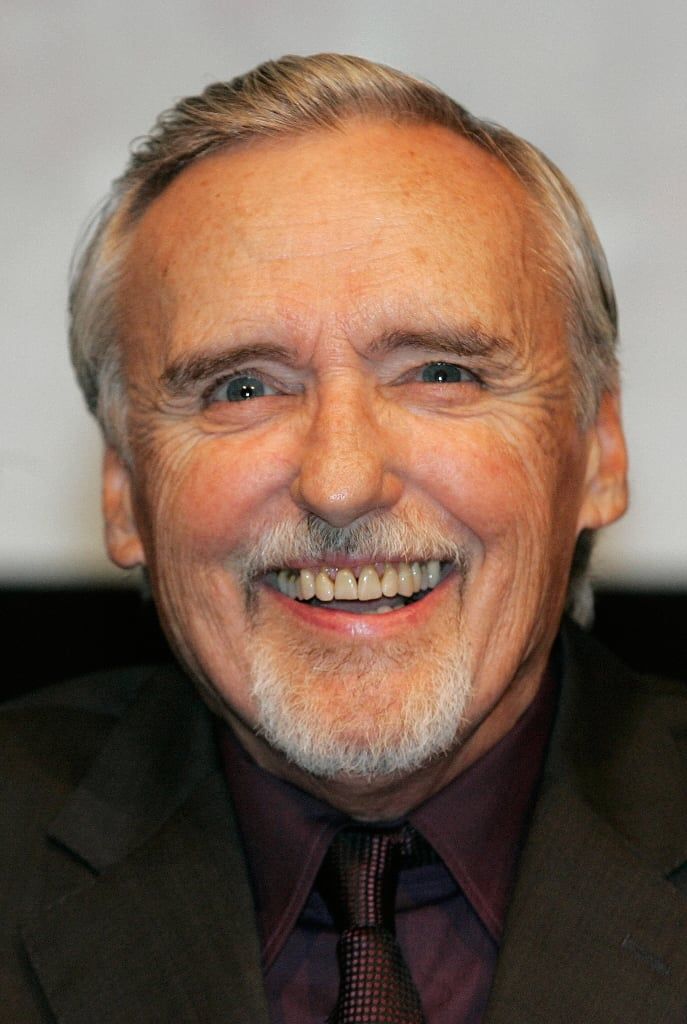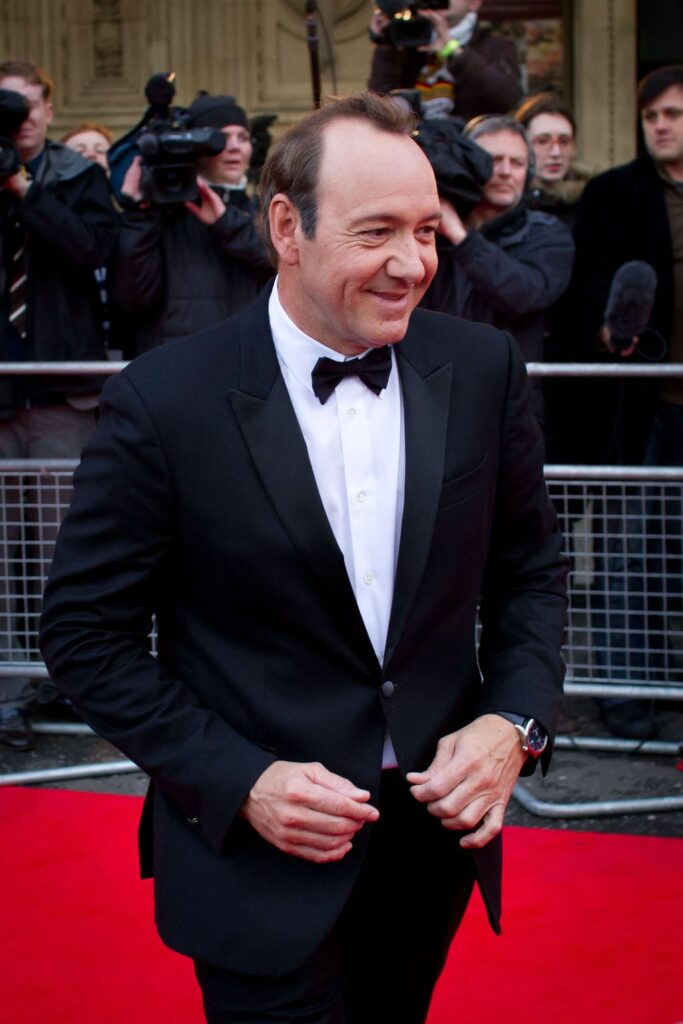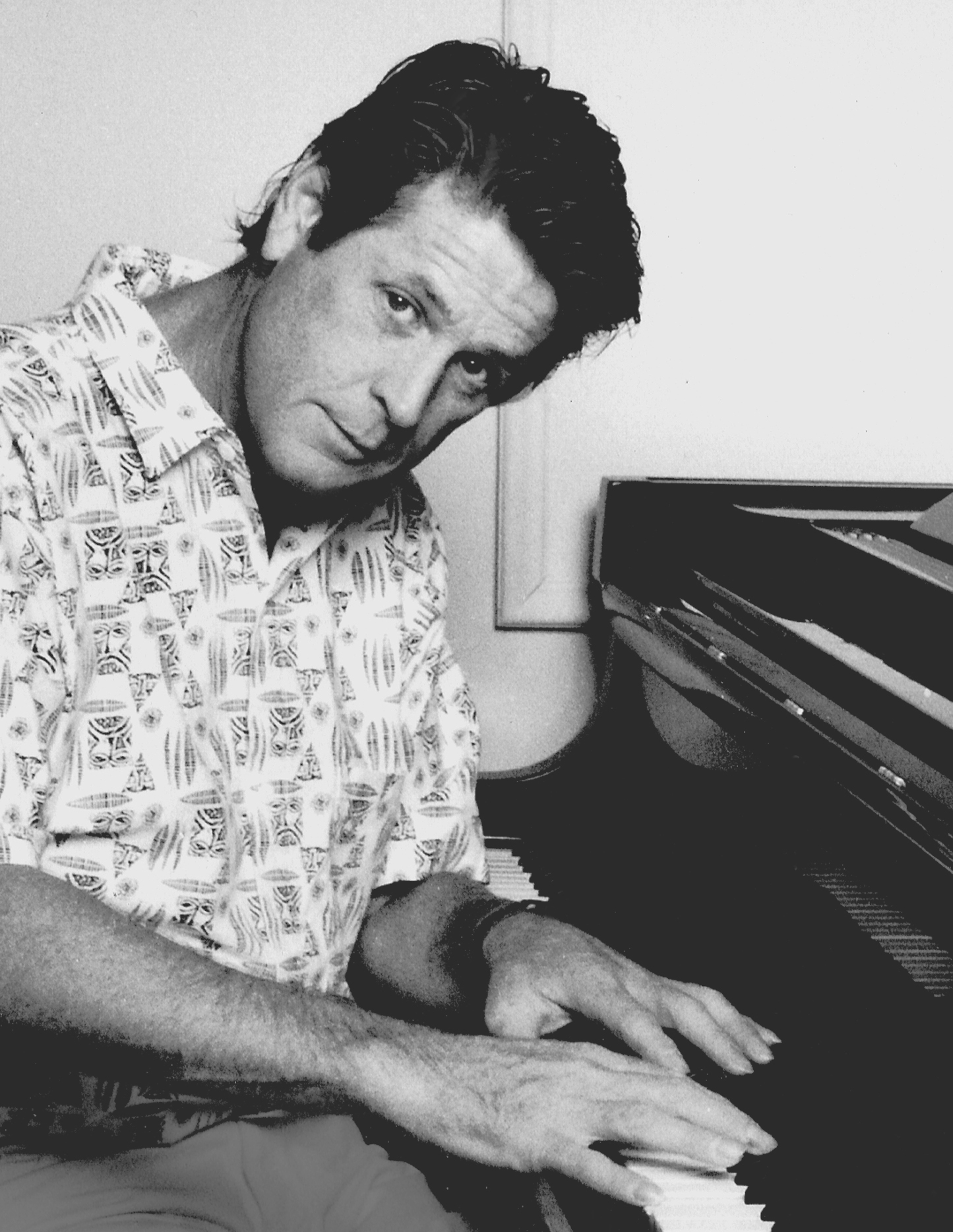
Hollywood, the land of dreams, red carpets, and blockbusters, often projects an image of seamless perfection. But behind the dazzling premieres and glowing reviews, there’s a whole other story unfolding – one filled with unexpected twists, creative clashes, and the occasional, jaw-dropping firing. You might think that once an actor has landed a coveted role in a major film, they’re set for the long haul. Well, prepare to have your perceptions challenged.
The film industry is notoriously unpredictable, and sometimes, even the biggest, most celebrated stars find themselves unceremoniously ditched from high-profile movies. It’s an experience that’s surely made worse when the news makes headlines around the world, turning a personal setback into a public spectacle. From clashes over creative vision to shocking off-set behavior, the reasons behind these abrupt departures are as varied as the stars themselves.
Today, we’re taking you on an exhilarating journey through 15 such instances – a deep dive into the moments when iconic actors were given their walking papers from major film sets. Get ready to discover the dramatic backstories, the surprising reasons, and the lasting impact of these infamous Hollywood firings. It’s a wild ride that proves that in Tinseltown, even the most secure-looking roles can vanish in a flash!

1. **Julianne Moore, *Can You Ever Forgive Me?*** Oscar-winning actress Julianne Moore, a chameleon of the screen known for her incredible range, was once slated to star as notorious literary forger Lee Israel in *Can You Ever Forgive Me?* On paper, it sounded like a dream pairing. Yet, just a few days before shooting was scheduled to begin, Moore found herself “sent packing.” It was a sudden and unexpected turn for an actress of her caliber.
The reason behind her departure, as Moore later revealed, was a fundamental disagreement with then-director Nicole Holofcener. “I think she didn’t like what I was doing. I think that her idea of where the character was, was different than where my idea of where the character was, and so she fired me,” Moore stated. This stark difference in artistic interpretation became an insurmountable hurdle, highlighting how crucial a shared vision truly is.
Adding more intrigue, Richard E Grant, who eventually played Israel’s friend Jack opposite Melissa McCarthy (who took over the lead role), claimed that Moore had “wanted to wear a fat suit and a fake nose.” This detail further underscores the divergent paths Moore and Holofcener envisioned for the character. It illustrates how even the most dedicated preparation can be at odds with the creative leadership.
Moore’s departure had significant repercussions for the film. The production actually “collapsed” after she left, an experience Holofcener described as “traumatic” and “terrible.” It then underwent a “significant shake-up,” bringing in a new cast and a new director, Marielle Heller. While the film later earned Oscar nominations, Moore herself, as recently as 2019, admitted she still hadn’t seen it, stating “it’s still kind of painful.” It’s a powerful reminder that not all firings are due to bad behavior, but sometimes a simple creative misalignment.
Read more about: Hollywood’s Casting Switch-Ups: Stars Who Were Fired From Big Movie Roles

2. **Ryan Gosling, *The Lovely Bones*** Envision Ryan Gosling, the epitome of Hollywood cool, being fired from a major Peter Jackson film. It sounds improbable, right? Yet, it’s exactly what happened when Gosling was cast as a father grieving his murdered daughter in Jackson’s adaptation of *The Lovely Bones*. His method of preparing for the role was certainly unconventional: he decided to put on weight by “drinking melted Haagen Dazs ice cream.”
He ended up gaining a substantial “60 pounds,” a transformation that apparently prompted Jackson to do a double take when Gosling arrived for filming. The core issue, as Gosling himself later explained, was a fundamental difference in how he and the filmmakers envisioned the character’s physical appearance. “We had a different idea of how the character should look. I really believed he should be 210 pounds,” he stated. This kind of physical dedication, while often lauded, proved to be his undoing.
The miscommunication extended beyond just his appearance. Gosling candidly admitted, “We didn’t talk very much during the pre-production process which was the problem.” He elaborated on the immense scale of the project: “It was a huge movie, and there’s so many things to deal with, and he couldn’t deal with the actors individually. I just showed up on the set, and I had gotten it wrong. Then I was fat and unemployed.” It paints a picture of a well-intentioned actor deeply committed to his craft, but ultimately out of sync with the director’s specific vision.
Writer and producer Fran Walsh, Jackson’s partner, offered a slightly different angle on Gosling’s departure. She suggested that the star, then in his late twenties, had actually “come to feel that he was too young to play the father of a teenager.” Mark Wahlberg was eventually drafted in to fill the role. It’s a stark lesson in the importance of clear communication in pre-production.
Read more about: Hollywood’s Casting Switch-Ups: Stars Who Were Fired From Big Movie Roles

3. **Megan Fox, *Transformers: Dark Side of the Moon*** In 2009, Megan Fox was a soaring star, with two blockbuster *Transformers* movies already under her belt. Her career was firmly on the rise, and she sat down for an interview with *Wonderland* magazine. What followed, however, completely derailed her involvement in the franchise and became one of Hollywood’s most talked-about firings.
In the resulting profile, Fox dropped a bombshell, likening *Transformers* director Michael Bay to one of history’s most infamous dictators. “He’s like Napoleon and he wants to create this insane, infamous mad man reputation,” she told the publication. “He wants to be like Hitler on his sets, and he is.” These incendiary comments, directed at a powerful Hollywood director, immediately caused a seismic stir across the industry.
Unsurprisingly, her character, Mikaela, did not appear in the next installment. Model Rosie Huntington-Whiteley joined the cast as a new love interest for main character Sam (Shia LaBeouf). The reason for Fox’s abrupt exit was later clarified by Bay himself. In 2011, he claimed that the film’s executive producer, Steven Spielberg, had directly demanded her termination. “You know the Hitler thing? Steven said ‘fire her right now,’” Bay told *GQ*. When Steven Spielberg speaks, Hollywood listens!
Fox herself later reflected on the incident with surprising candor, describing it as “absolutely the low point of my career.” However, she also expressed gratitude for the lessons learned. “All I had to do was apologise, and I refused. I was so self-righteous at 23, I couldn’t see [that] it was for the greater good. I really thought I was Joan of Arc,” she told *Cosmopolitan*. It’s a powerful story of how unchecked words can have immediate and career-altering consequences.
Read more about: Hollywood’s Casting Switch-Ups: Stars Who Were Fired From Big Movie Roles

4. **Natalie Portman, *Romeo + Juliet*** Baz Luhrmann’s frenetic and iconic film adaptation of Shakespeare’s *Romeo + Juliet* is indelibly etched in cinematic history with Leonardo DiCaprio and Claire Danes in the title roles. However, it’s a fascinating piece of trivia that before the cameras started rolling, Natalie Portman had been initially cast as Juliet. She had successfully beaten out “hundreds of young hopefuls” for what would have been a career-defining role.
However, Portman was only “in her early teens” at the time of pre-production. As filming progressed, a crucial issue emerged: it “soon became clear that romantic scenes between her and 21-year-old DiCaprio weren’t ‘appropriate’.” The age gap, while perhaps not an immediate concern in casting, became a significant hurdle when the realities of portraying a passionate romance on screen became apparent. This led to her eventual departure from the film.
Portman later spoke about the challenging situation with maturity. “It was a complicated situation. At the time I was 13 and Leonardo was 21, and it wasn’t appropriate in the eyes of the film company or the director, Baz,” she explained. “It was kind of a mutual decision too that it just wasn’t going to be right at the time.” Her account emphasizes that the decision was rooted in the film’s suitability and the comfort of everyone involved.
Luhrmann himself shed more light on the reasoning in a 2022 interview, offering a pragmatic perspective. “When you [saw] Leo in the flesh, he’s a tall, young man and you just realised, she was too young. Natalie was amazing in the footage, but it was too much of a burden for her at that age,” he explained to the *New York Times*. This illustrates how, sometimes, even a brilliant actor might be unsuitable for a role simply due to an unavoidable factor like age.
Read more about: Hollywood’s Casting Switch-Ups: Stars Who Were Fired From Big Movie Roles

5. **Stuart Townsend, *The Lord of the Rings*** Imagine training for months, immersing yourself in a legendary fantasy world, only to be told you’re out just days into filming. That was the harsh reality for Irish actor Stuart Townsend, who was originally cast as Aragorn in Peter Jackson’s monumental screen version of JRR Tolkien’s *The Lord of the Rings*. The Fellowship of the Ring could have looked incredibly different, with Townsend bringing his own interpretation to the iconic ranger.
After dedicating himself to “months of training and rehearsals,” Townsend was dramatically “let go from the film – just a few days into the shoot.” This last-minute change must have been a monumental blow after such extensive preparation. Townsend later voiced his strong feelings about the decision, telling *Entertainment Weekly*, “The director wanted me and then apparently thought better of it because he really wanted someone 20 years older than me and completely different.”
His candid comments underscore his frustration, adding that he had “no good feelings for those people in charge.” The producers were then faced with a frantic scramble to find a replacement, ultimately phoning Viggo Mortensen – who was, indeed, 14 years Townsend’s senior – and asking him to fly out to New Zealand for filming at the very last minute. It’s a testament to the high-stakes nature of blockbuster filmmaking, where creative shifts can happen with brutal speed.
Mortensen, reflecting on the situation, confessed that he “felt awkward about it” when he learned he would be replacing someone. He wondered if he would even meet the original actor, but Townsend was “gone when I got there.” Mortensen was simply “thrown into it and had to do the best I could.” This particular firing highlights a classic Hollywood scenario where a director’s vision for a character can evolve right up to (and even during) production, leading to painful recasting decisions.
Read more about: Actors Who Were Fired Mid-Film (And Why)

6. **Viggo Mortensen, *Platoon*** Before he became synonymous with the heroic Aragorn, Viggo Mortensen himself experienced the crushing disappointment of being unexpectedly (and unceremoniously) dropped from a cast. He had auditioned for Oliver Stone’s seminal Vietnam War drama *Platoon*, a film that would go on to become a classic. After his audition, the director reportedly told him that more money needed to be raised before filming could begin, leaving Mortensen with the impression he had the role.
Mortensen then dedicated himself completely to the part, spending “a year getting into character” and “reading every possible thing about Vietnam.” This level of commitment is admirable, showcasing an actor’s profound dedication. Imagine pouring a year of your life into preparing for a role, only to have it vanish. That’s precisely what happened when Mortensen “read in a newspaper that Stone was now making the film with Willem Dafoe in the role he’d thought was his.” It’s a truly disheartening way to discover you’ve been replaced.
He later learned through a phone call that the movie now had “a bigger budget,” and Stone simply “wanted a higher profile star to match.” This candid explanation reveals the often-harsh realities of Hollywood deal-making, where financial backing and star power can override an actor’s intense preparation and initial casting. It’s a vivid example of the fickle nature of the film industry, where promises can be broken due to external pressures.
Despite the initial sting of discovering his replacement via newspaper, Mortensen has maintained a remarkably magnanimous perspective on the incident over the years. “I wouldn’t have done the other things I’d done if that had happened – and if I had that sort of initial success, maybe I’d have got tired of the whole thing and quit,” he reasoned. This mature reflection suggests that sometimes, what seems like a setback can actually clear the path for unforeseen opportunities and a more fulfilling career.

7. **Eric Stoltz, *Back to the Future*** It’s a piece of cinematic lore that often surprises fans: the iconic role of Marty McFly in *Back to the Future*, now forever associated with Michael J. Fox, was initially played by Eric Stoltz. Fox was the producers’ first choice, but his commitment to the hit sitcom *Family Ties* meant he was unavailable. Consequently, the filmmakers “sign up Eric Stoltz in the lead role.” For several weeks, Stoltz was indeed strapping on the self-lacing sneakers and getting into the DeLorean.
However, after a few weeks of filming, it became “clear that Stoltz just didn’t have the comic timing to pull off the part.” *Back to the Future* is a quintessential comedy, and the specific comedic rhythm was paramount. Additionally, his “method approach to the role reportedly riled up some of his fellow cast and crew,” creating a tense atmosphere on set. This clash of acting styles and comedic sensibilities proved to be an insurmountable creative hurdle for director Robert Zemeckis.
Eventually, Zemeckis made the incredibly difficult decision that Stoltz “had to go.” Breaking the news to the actor “was the worst experience of my career,” Zemeckis recalled, admitting, “I simply miscast him and I learned a very serious lesson.” This decision, though agonizing, was a testament to Zemeckis’s commitment to the film’s vision and ensuring the comedic heart of the story was perfectly captured, even if it meant a costly and emotionally taxing recasting.
Michael J. Fox, their initial first choice, was finally drafted in, famously embarking on an exhausting schedule: filming *Family Ties* during the day and *Back to the Future* at night. As for Stoltz, he later described his firing as a “freeing” experience, telling *Moviehole*, “In retrospect, I think just getting through that difficult period helped me realise how freeing it really was.” He used the experience to pivot, returning to acting school, moving to Europe, and doing plays in New York, actively “invested in myself in a way that was much healthier for me.” It’s a remarkable example of turning a very public setback into a personal and professional growth opportunity.
Read more about: 12 Mind-Blowing ‘Back to the Future’ Facts Even True Fans Might Not Know!

8. **Harvey Keitel, *Apocalypse Now***Harvey Keitel, known for his intense roles, was set to play Willard in Francis Ford Coppola’s *Apocalypse Now*. This was a pivotal role in an epic journey, but the film’s famously turbulent production in the Philippine jungle soon led to an early change in lead actors.
Coppola later claimed Keitel seemed “very uncomfortable about conditions in the jungle.” He questioned, “what’s it going to be like for six months in these difficult conditions in the jungle for a city guy who’s afraid of it?” This perceived discomfort highlighted a potential mismatch for the grueling shoot.
Keitel, however, strongly disagreed, stating, “Well, Harvey Keitel spent three years in the United States Marines Corps in the jungle.” His retort suggested a clash of perspectives rather than fear. Ultimately, Martin Sheen took over the role, himself facing health issues during the infamously demanding production. It just goes to show how sometimes, even for the most seasoned actors, a director’s vision or perception can lead to an unexpected exit.
Read more about: Hollywood’s Casting Switch-Ups: Stars Who Were Fired From Big Movie Roles

9. **Richard Gere, *The Lords of Flatbush***Before they hit superstardom, young Richard Gere and Sylvester Stallone were cast in *The Lords of Flatbush*, a 1950s coming-of-age story. Imagine these two future icons, early in their careers, sharing a set! Unfortunately, their collaboration was brief, marred by an intense personal dislike that quickly became a full-blown on-set clash.
Stallone, in a 2006 interview, vividly recalled Gere’s swagger and a pivotal lunch incident. “A small, greasy river of mustard lands on my thigh” from Gere’s “half a chicken,” prompting Stallone to “elbowed him in the side of the head and basically pushed him out of the car.” Talk about a food fight gone wrong!
This messy confrontation sealed Gere’s fate. Stallone stated that “the director had to make a choice” between them, and Gere was “given his walking papers.” It’s a wild tale proving that sometimes, even the slightest personal friction can derail a performance when egos collide in Hollywood.
Read more about: Hollywood’s Casting Switch-Ups: Stars Who Were Fired From Big Movie Roles

10. **Jean-Claude van Damme, *Predator***The original *Predator* film, a sci-fi action classic, nearly featured martial arts legend Jean-Claude van Damme as its titular alien. It sounds like an epic crossover, right? But the behind-the-scenes reality was pure chaos, leading to his quick departure before a single frame of his performance as the monster made it to the screen.
Van Damme’s time in the monster suit was reportedly a struggle. He “hated wearing the outfit – and stilts – required to transform him,” finding it hard to breathe. Co-star Bill Duke even claimed van Damme was fired after “passing out in the costume due to dehydration,” receiving a stern warning from a producer.
Other rumors? Van Damme allegedly “threw the alien’s head to the floor and damaged it,” and apparently “wanted the Predator to be a kickboxer.” These tales paint a picture of an actor struggling with the physical demands and the creative vision of such a unique role.
Ultimately, the filmmakers weren’t happy with the initial creature design or van Damme’s portrayal. After a redesign, they opted for a different actor, bringing in seven-foot-two basketball player Kevin Peter Hall to play the iconic alien. It just goes to show how many things can go sideways when trying to bring a sci-fi monster to life!
Read more about: Hollywood’s Casting Switch-Ups: Stars Who Were Fired From Big Movie Roles

11. **James Remar, *Aliens***Character actor James Remar was initially cast as Corporal Dwayne Hicks in James Cameron’s highly anticipated *Aliens*. This was a big role in a future sci-fi classic, placing him alongside Sigourney Weaver. Yet, after only a few weeks of filming, Remar abruptly left, his exit initially shrouded in vague reports of “urgent matters at home.”
The real reason, as Remar later bravely revealed, was far more personal and painful. He candidly admitted to a severe struggle with addiction, stating, “I had a terrible drug problem, but I got through it.” He acknowledged the devastating impact on his career, confessing, “I had a great career and personal life, and messed it up with a terrible drug habit.”
His drug use led directly to his termination. “I was initially cast as Corporal Hicks, and I was fired after a couple weeks of filming because I got busted for possession of drugs,” Remar shared. This stark admission highlights Hollywood’s zero-tolerance for off-set behavior that jeopardizes production.
Michael Biehn stepped in as his replacement, delivering a memorable performance that became closely associated with his career. Remar’s story is a powerful, cautionary tale, illustrating how personal struggles can unexpectedly cut short even the most promising opportunities in the cutthroat world of film. Sometimes, the biggest battles are fought off-screen.
Read more about: Sigourney Weaver, 74 and Glowing: A Red Carpet Reignition and Her Enduring Legacy at the Venice Film Festival!

12. **Kel O’Neill, *There Will Be Blood***Working with a Method actor as legendary as Daniel Day Lewis? Talk about intimidating! His intense, Oscar-winning approach is famously immersive. So, when reports emerged that Kel O’Neill left Paul Thomas Anderson’s *There Will Be Blood* due to intimidation by Day Lewis, it certainly sounded plausible given the veteran star’s mystique.
Director Anderson simply stated O’Neill “just wasn’t the right fit,” a common industry phrase that often hides deeper issues. The prevailing narrative suggested a clash of acting styles or an inability to match Day Lewis’s sheer intensity.
Paul Dano famously stepped in, brilliantly playing O’Neill’s original role and his own previously cast character, rewritten as twins. Talk about a double duty!
However, a decade later, O’Neill offered his own version to *Vulture*, pushing back on the intimidation narrative. He claimed the real issue was a lack of comfort and chemistry between himself and director Anderson. “For some reason, even though every other actor I know had a relationship with Paul that was super positive… that just didn’t happen with me.” It just goes to show that even when everyone involved is brilliant, sometimes the magic simply isn’t there!
Read more about: Hollywood’s Casting Switch-Ups: Stars Who Were Fired From Big Movie Roles

13. **Dennis Hopper, *The Truman Show***By the 90s, Dennis Hopper was Hollywood’s ultimate bad guy, nailing roles in *Speed* and *Waterworld*. With his intense gaze, he seemed perfectly cast as Christof, the creepy, puppet-master creator in *The Truman Show*. What a perfect fit on paper!
But the filmmakers weren’t entirely convinced, and their doubts grew once the cameras started rolling. After just *one day* of filming, Dennis Hopper was abruptly off the production. Talk about a short-lived gig!
Hopper later explained the brutal truth: “Scott Rudin, the producer, had made an agreement with the director [Peter Weir] that […] he didn’t want me to do the part, and if he didn’t like what I did after the first day’s dailies then he would fire me.” And true to their word, “they fired me.” It’s a stark reminder of Hollywood’s unforgiving nature.
Ed Harris eventually took over the role, earning an Oscar nomination for his chilling performance. It’s a classic Hollywood “what if” story, showing how quickly a promising role can vanish, and how one actor’s bad day can become another’s golden opportunity. You just never know what those dailies will reveal!
Read more about: Actors Who Were Fired Mid-Film (And Why)

14. **Kevin Spacey, *All the Money in the World***In a shocking, industry-shaking move, Kevin Spacey was fired from Ridley Scott’s *All the Money in the World*. This wasn’t about creative differences, but a direct result of severe off-set sexual assault allegations that emerged just before the film’s release, signaling a dramatic shift in how Hollywood tackles misconduct.
The #MeToo era allegations created an immediate crisis. With the film completed and set for awards, removing Spacey was an ethical imperative but also a massive logistical and financial undertaking.
In an unprecedented decision, director Ridley Scott opted to entirely reshoot all of Spacey’s scenes with Christopher Plummer. This monumental effort occurred remarkably fast, just weeks before release. It was a clear statement: Spacey’s alleged conduct would not overshadow the work of the film’s dedicated crew and cast.
Plummer’s performance even earned him an Oscar nomination, proving the impossible was possible. Spacey’s firing from *All the Money in the World* remains a powerful example of Hollywood’s new era of accountability, where severe personal conduct allegations can erase even a completed performance. It truly redefined “the show must go on.”
Read more about: King of Cool: A Comprehensive Look at Dean Martin’s Enduring Legacy, Iconic Career, and Final Years

15. **Armie Hammer, *Various Films***Armie Hammer, once a leading man in major films, saw his career collapse spectacularly due to a barrage of disturbing allegations. This wasn’t a single firing, but a complete industry-wide rejection, as he was “fired from just about every upcoming film and show he was meant to be in.” It was a swift, total downfall driven by severe off-set controversies.
The allegations against Hammer were deeply unsettling, including claims of sexual assault and alleged messages where he chillingly called himself a “cannibal.” These shocking accusations spread quickly, creating an insurmountable PR disaster for any production linked to him. Hollywood, increasingly sensitive to ethics and public image, reacted decisively.
As these details emerged, Hammer was swiftly removed from a string of high-profile projects. He exited films like *Shotgun Wedding* and *Billion Dollar Spy*, and a Broadway production. This wholesale dismissal underscored the industry’s zero-tolerance policy when facing such severe and predatory allegations.
Hammer’s case is a profound and sobering reminder of how rapidly an actor’s career can be dismantled when personal conduct enters alleged criminal or deeply unethical territory. It highlights the immense pressure on studios to protect their brand, swiftly cutting ties with individuals facing such grave accusations. In Hollywood, reputation and behavior can quickly dictate professional fate.
And there you have it, folks! Our wild, no-holds-barred journey through the most unforgettable instances of actors getting the boot from major Hollywood films. From creative clashes that were simply too big to bridge, to the bewildering decisions of method actors, and even the truly shocking off-set scandals that rocked the industry, these stories prove that Tinseltown is just as dramatic behind the scenes as it is on the silver screen. It’s a world where talent, ego, and sheer unpredictability collide, reminding us that even the biggest stars can find their spotlight dimmed in an instant. So next time you’re watching a blockbuster, spare a thought for the actor who *almost* made it into the final cut – because in Hollywood, anything can happen, and often does!




